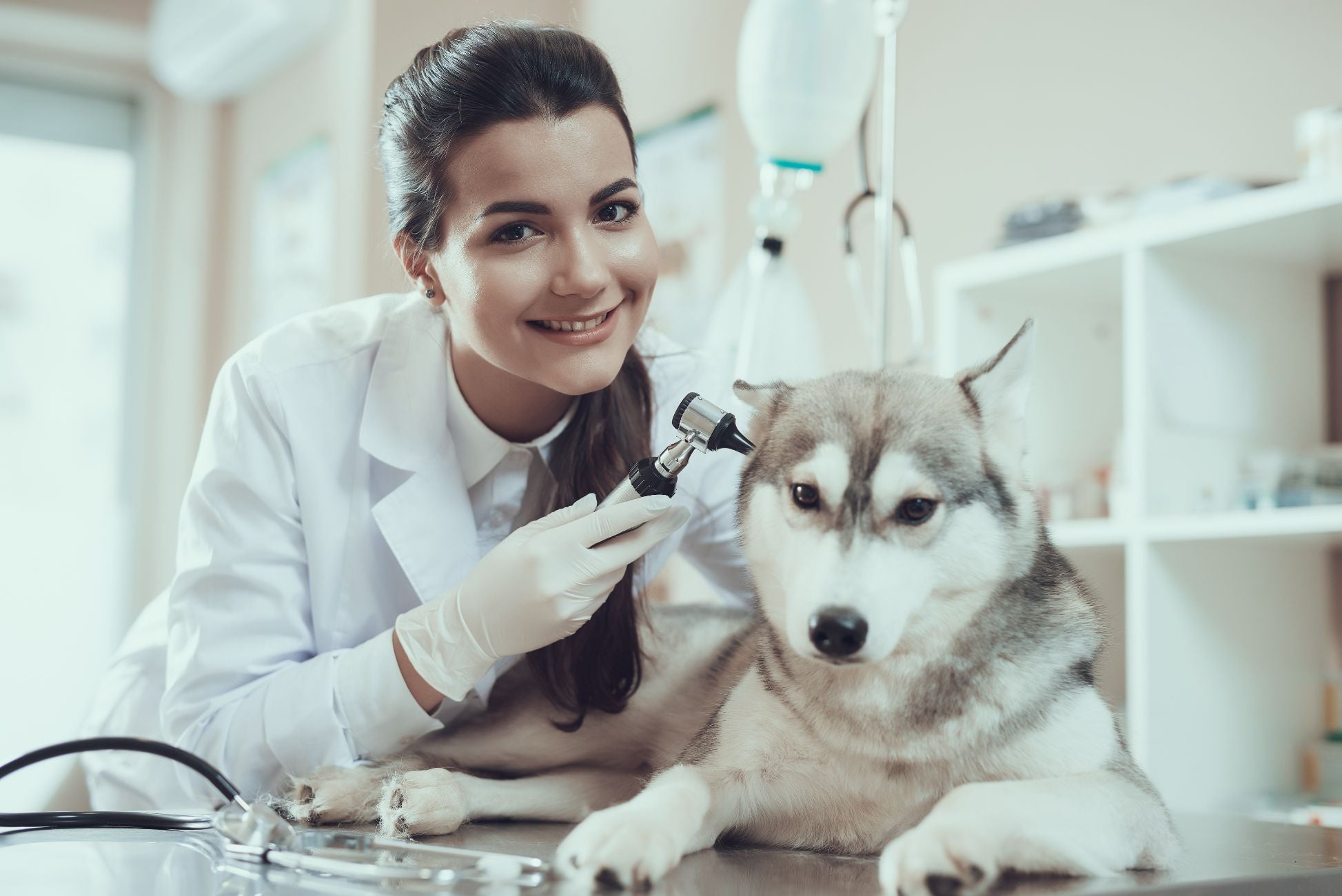
- by Dr.Thilo Senst
Using Dog Ear Drops Effectively: A Vet’s Guide for Healthy Ears
- by Dr.Thilo Senst
How to Use Ear Drops for Dogs: A Vet’s Guide
Ear health is a vital component of a dog’s overall well-being. Dogs’ ears, particularly in breeds with long or floppy ears, are prone to infections, mites, wax buildup, and other issues that can cause discomfort. Dog ear drops are an effective solution for managing and preventing many of these issues. This article will guide you on how to safely use dog ear drops, explain their benefits, and provide tips on maintaining your dog’s ear health.
In the UK, a recent survey conducted by the PDSA revealed that ear infections rank among the top five most common conditions affecting dogs. Learning to use ear drops properly can prevent frequent vet visits and keep your pet comfortable.
Dog ear drops are specially formulated to target various ear-related conditions. They may contain antiseptic ingredients to prevent bacterial and fungal infections or soothing agents to relieve inflammation and irritation. Properly using ear drops can effectively treat conditions like ear infections, ear mites, wax buildup, and inflammation.
Before reaching for the ear drops, it’s essential to understand the signs that your dog may have an ear issue.
Think of a dog’s ear canal as a coiled garden hose. Unlike humans, whose ear canals are relatively straight, dogs’ ear canals bend and turn, creating a warm, dark environment perfect for bacteria and yeast to grow. Ear drops act like a targeted cleaning solution, flushing out bacteria and debris in those hard-to-reach twists and turns.
Knowing how to apply ear drops correctly is crucial for effective treatment.
You’ll need:
Choose a calm environment. Gently hold your dog’s head, talking in a soothing tone. For wriggly dogs, ask someone to help by holding your dog steady.
Using a damp cotton ball, gently clean the outer part of the ear to remove visible debris. This helps prevent dirt from being pushed deeper into the ear canal.
Allow your dog to shake their head after the application. This helps to dislodge any debris inside the ear.
Use a clean cotton ball to wipe away any liquid that may have dripped out of the ear.
The frequency depends on the condition being treated:
Infections are one of the most common dog ear issues, and ear drops can help prevent these by keeping the ears clean and free of debris.
By maintaining a regular ear hygiene routine with dog ear drops, you reduce the chances of infections and the need for antibiotics or anti-fungal medications.
It’s best to avoid using human ear drops on dogs. Dog ear drops, like Dr. Senst Antiseptic Dog Ear Cleaner Drops, are formulated to suit the specific pH and requirements of a dog’s ear canal.
Signs of an allergic reaction include increased redness, swelling, or excessive scratching after application. If you suspect an allergy, discontinue use and consult your vet.
Mild irritation or excessive shaking can sometimes occur, especially if the dog has an active infection. This usually subsides within a few minutes.
If your dog’s symptoms persist or worsen, contact your vet. Some ear infections may require additional treatment.
Many dog ear drops contain ingredients that support ear health by targeting specific issues:
Using ear drops is like giving your dog’s ears a spa day, refreshing and revitalising the ear canal. With proper care, ear drops can become a relaxing experience, similar to the way humans feel after a good ear cleaning.
For effective ear care, I recommend:
By integrating regular ear cleaning with quality ear drops, you can prevent many common ear issues and improve your dog’s overall comfort and well-being.
![]()
Enter your details & download our comprehensive 50+ page printable Dr. Senst Pet Care Planner completley FREE! - keep track of all your pet’s needs, from medical history and training to vet visits, grooming, diet, and more!










Share:
How to Keep Your Dog Calm During Car Rides: Tips for Travelling
How Dog Probiotics Aid Chronic Digestive Issues: Full Guide